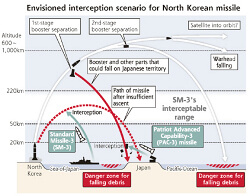In my dreams, I have a plan
John at 21st-Century Schizoid Man has been writing a lot about the way we’re getting rubber-hosed by the current administration’s forays into business and trade engineering.
The second point is how markets were distorted by government regulation in such a way that market-clearing economic activity led to the results that the critics are now calling market failures: the markets didn’t fail. They just punished those who followed government-mandated development that no market could sustain.
This is the great tragedy of the recent crisis: that government, which got us into the situation, is actively making things worse. The markets obey the Gods of the Copybook Headings, the unavoidable effects of cause and effect, the inexorable meeting of demand and supply in clearing the market of available goods, what we economists call equilibrium. Politicians sincerely believe that they can manipulate markets to give them the politically desired effects: that works only for a relatively short period of time, as markets will ruthlessly punish those who mess with them. The invisible hand of Adam Smith doesn’t care about political goals and will destroy, in the long run, anyone trying to game the markets for political effects.
The Japanese have spent the last two decades finding that out, too.
If you’re not depressed enough, Eric links to a piece by Jim Geraghty that argues, fascinatingly if not surprisingly, that Washington is now following the Alinsky model of governance. (Yes, Saul Alinsky, of course.) Eric adds:
Bear in mind that from the voters’ standpoint, both sides always say they care more about principle than power, and they always say that the other side has no principles. I think voters tend to be more cynical than is customarily believed, and certainly they’re smart enough to realize that to most politicians, “principles” are all about talk. Something the chattering classes and political junkies might debate, but nothing for which any rational politician would risk losing his seat. Besides, how are ordinary people supposed to evaluate the legitimacy of rival politicians’ claims to having “principles”? I think it’s more likely that in the end, voters will do what the politicians do, and conclude that it’s all about power.
There’s certainly plenty of evidence to back that up.
I always find it funny when my more liberal friends get all enthusiastic about government as this wonderful vehicle for us as The People to pool our power and realize our Visions. That sounds nice, but in practice it runs smack up against the fact that Americans disagree in good faith over a lot of policy principles, and not everyone can win. Most government officials have narrow experience and expertise just like the rest of us, and asking them to butt in on all kinds of issues they can’t possibly have the knowledge to adjudicate is just asking for trouble. It forces voters to monitor what their congresspersons and senators think about anything and everything. It gives Washington officials a broad range of influence to peddle. (Or, if you prefer to believe venality originates with the private sector, it gives lobbyists of every stripe a reason to come calling.) And it gets those officials addicted to the (heady, one can only imagine) feeling that they have not only the authority but also the know-how to drive the economy and engineer society. And this is what we get.
Added after a few more sips of coffee: I pushed “Submit” before remembering to add this back in: I realize it’s not just liberals who openly romanticize government who vote for meddlesome nanny-state policies and distortionary entitlements. There are as many on the right as on the left who could stand to bear in mind the old libertarian saw that it’s dangerous to increase the powers of the state under the assumption that your friends are always going to be those enforcing them.
